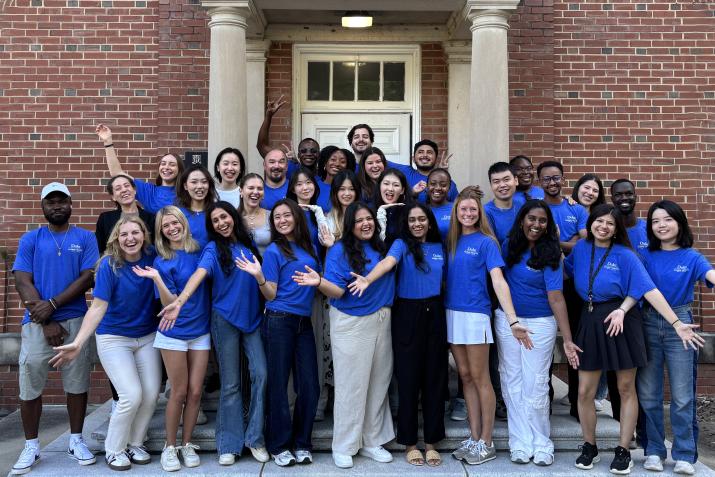More than half of the new master’s students are from outside the United States, including enrollees from China, Ethiopia, Honduras, India, Mexico, Nigeria, Peru, Rwanda and Tanzania. They are equally diverse in terms of background and experience, with students who completed undergraduate programs in fields such as environmental science, microbiology, psychology, exercise science, journalism and dental surgery. At DGHI, they plan to study global health topics such as health policy, maternal health, data science, environmental toxicology, health in conflict zones, and health technology and innovation.
”This cohort is an incredibly bright, energetic and accomplished group who have clearly articulated a strong commitment to using their unique talents and expertise to advance global health equity,” says Aunchalee Palmquist, Ph.D., DGHI’s director of graduate studies. “They have such a strong positive energy that has inspired and energized our education team over this last week of orientation.”
This year’s master’s cohort includes three students in the Accelerated MS-GH program, which allows Duke undergraduates to complete the master’s degree with only one additional year of study. One student will pursue the MS-GH degree as part of the Global Health Pathway for Residents and Fellows, which provides opportunities for medical residents to participate in global health research and training.
This fall also brings the return of DGHI’s doctoral scholars program, which has been retooled as a grant program supporting doctoral dissertation research on a global health-related topic. Five current Duke Ph.D. students will receive grants this year, supporting research projects in Madagascar, Panama and Tanzania.
Undergraduate students, meanwhile, will have new global health course options, including a revamped Global Health Focus course that includes an exploration of AI and health. Sumi Ariely, Ph.D., an associate professor of the practice of global health, will assume leadership of DGHI’s senior capstone course, which will include team-based projects with new community partners.
“In all of our programs, we want to emphasize that global health has implications that extend well beyond just health issues and professions,” says Egger. “It’s an approach to understanding and addressing complex challenges that can benefit students no matter what career they choose to pursue.”
The incoming master’s degree students arrived on campus Aug. 18 to participate in orientation and welcome programs, including campus tours, meetings with advisors and faculty, and a community-building retreat at the Triangle Training Center in Pittsboro. See our Flickr album for a selection of photos from the welcome week activities.

